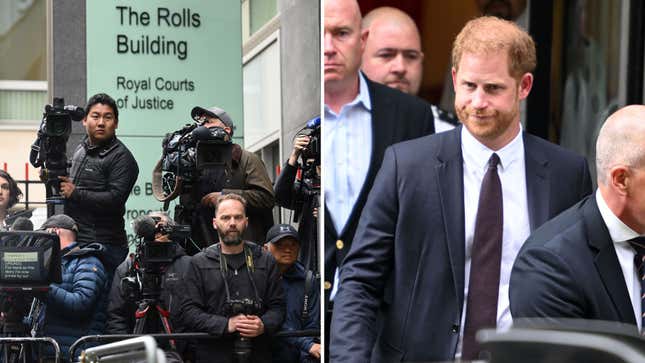Yes, the British Tabloids Are Bad. But Prince Harry’s Argument Against Them Is Weak.
I'm sympathetic to his case; he's been overly scrutinized and overly criticized for most of his life. That is not fair. But that doesn't mean it's a crime.
CelebritiesRoyals

Prince Harry—he of the once-frozen todger—is back in old Blighty this week to participate in one of his favorite pastimes: fighting the media.
Harry took the stand on Tuesday (the first time a royal had done so in over 130 years) to testify against the Mirror Newspaper Group (MNG), whom he and more than 100 other people are suing over various alleged misdeeds, including phone hacking and paying for stories, between 1991 and 2011.
Prior to what was described as a “relentless” car chase in Manhattan in May and a quick appearance at his father’s coronation, we hadn’t heard much from the Duke of Sussex since he released his memoir, Spare, in January, or since the Netflix docuseries about his and Meghan’s love-and-escape-from-the-UK story dropped in December. Both the book and the series were full of complaining about the British press, so his reemergence doing the same on Tuesday was a fitting return to form.
-

-

-

-

-

-

-

-

-

-

-

-

-

-

-

-

-

-

-

-

-

-

-

-

-

-

-

-

-

-

-

-

-

-

-

-

-

-

-

-








































